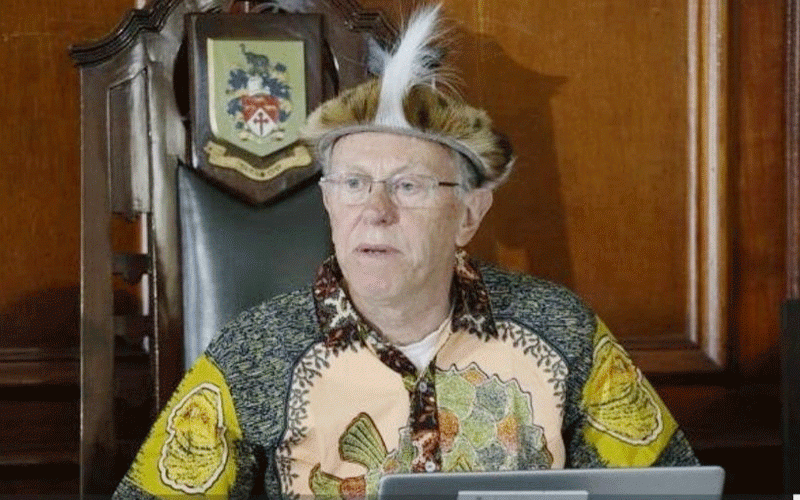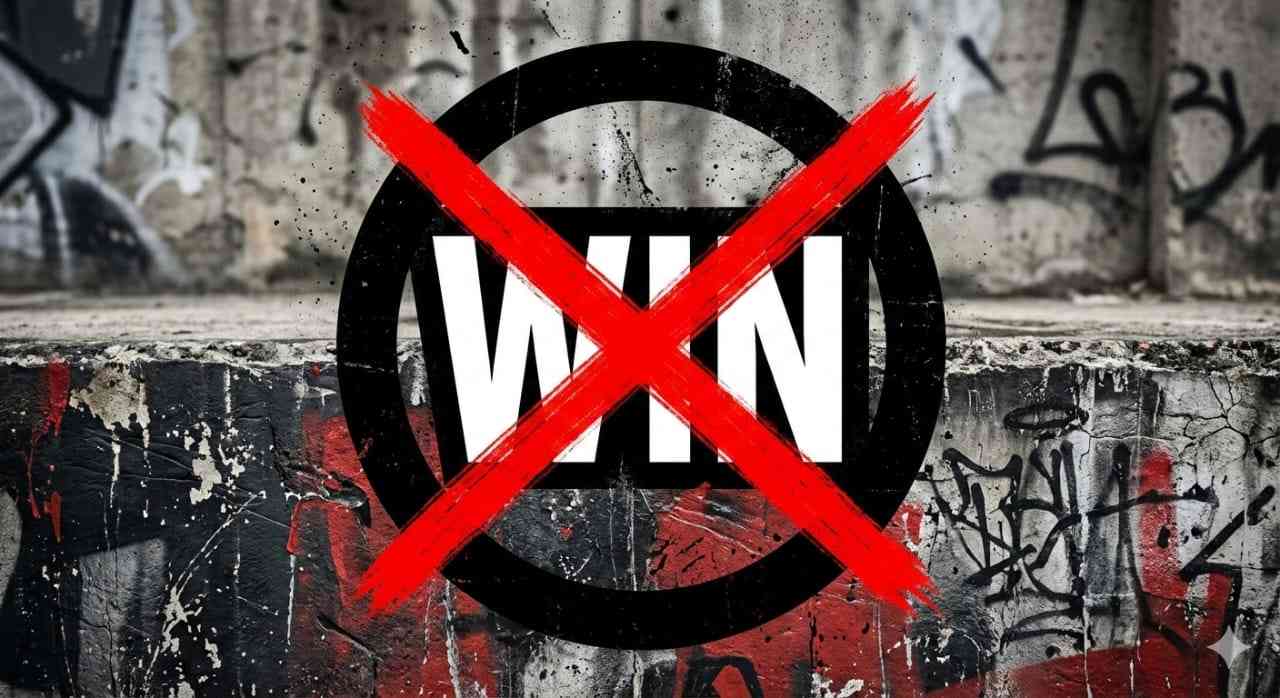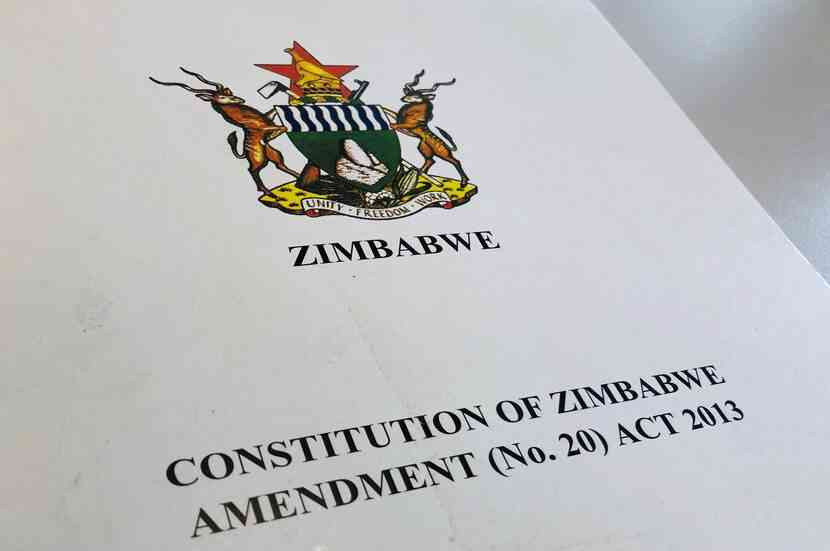
A seemingly innocuous picture of Bulawayo mayor David Coltart and Bulelani Khumalo, who claims to be the Ndebele king, seems to have caused panic in the corridors of power with a tempest in a teacup brewing.
Daniel Garwe, the local government minister set the ball rolling, with an incoherent and illogical letter reprimanding Coltart for meeting with a supposed imposter.
Christopher Mutsvangwa, Zanu PF’s know-it-all loudmouth spokesman was next, also berating both Bulelani and Coltart for the meeting, with the mayor being accused of referring to Bulelani as king, at a time when the constitution does not recognise the post of a monarchy.
I am not a big fan of monarchies and if I lived in a kingdom, I would certainly be an abolitionist. The idea that one family is God ordained to govern us through eternity does not sit well with me.
But I get what some of the Ndebeles are doing by trying to revive their kingdom and identifying an heir to the last monarchy, Lobengula.
It is part of their culture and heritage and it is their right to uphold it. After all, the Zimbabwean constitution emphasises the promotion and preservation of cultural heritage, including traditional knowledge and practices.
The constitution also recognises the nation's diverse cultural values and seeks to foster a sense of national identity built upon these traditions.
Just a little bit of history, after King Lobengula’s fall, the colonial government forcibly drove the king’s children to South Africa so that the Ndebeles would not have a symbol of power and a group of people to look to in search of direction in the aftermath of colonialism.
- Benzema confident Real will reach UCL final
- Outrage over school uniform prices
- Rigging exposes widening Mnangagwa, Chiwenga rift
- Schools reopen amid deepening teacher crisis
Keep Reading
Without the symbolic presence of a king nor princes, the colonial government was able to impose its own way on the Ndebele.
As George Orwell said: “The most effective way to destroy people is to deny and obliterate their own understanding of their history.”
You would expect that a post-colonial government would seek to bring back the traditions, where possible, that were upended by the colonial regime, but not this one.
Zanu PF has maintained the worst instruments of the colonial government, even while claiming to have fought colonialism, because it knows how to manipulate these instruments to ensure its perpetual hold on power.
The uproar over Bulelani has nothing to do with the constitution or the law, but rather its founded on fear and paranoia.
Like the colonial government, Zanu PF fears that if there is a symbolic leader, not just of the Ndebele but any other tribe, their control over the people may be loosened and that sends shivers down their spines.
I know you may argue that there are chiefs already and the government has allowed them to let them rule, so this flies in the face of my theory on fear and paranoia.
To be honest, most chiefs are nothing but mere puppets and appendages of Zanu PF, another colonial heritage.
Chiefs that dare to stand up to the government are quickly dispensed with, ask Felix Ndiweni of Ntabazainduna.
The remainder are only too grateful to receive cars and other trinkets from the authorities and would not dare raise a voice to condemn government excesses.
The process of appointing chiefs is also heavily government-centric, with communities playing bit parts.
This is another colonial inheritance, Ian Smith, the racist prime minister, knew how to use chiefs to give a facade that local leadership supported him.
But in the Bulelani case, he was not “coronated” by the government but by the people and this scares Zanu PF and the government.
If the people can choose their traditional leaders, what can stop them from selecting their political leaders? This is what scares the powers that be.
Zanu PF is obsessed with control and will do anything to crush anything that they cannot control.
What worries me is the fake allyship that people like Mutsvangwa showed when they wanted to remove long-time despot, Robert Mugabe.
They said the right things, but because we really wanted Mugabe gone, we did not ask the right and pertinent questions.
Now, Mutsvangwa is showing his true colours. Him and his party are holding onto colonial relics and instruments to crush a people’s cultural rights.
I do not understand the furore over the Bulelani issue. He has not sought any political power and his presence in most places is usually nothing more than symbolic.
Neither has Bulelani nor his supporters sought to piggyback on taxpayers money and for this reason, the government and Zanu PF’s response clearly does not make sense.
Instead of this hysteric response, Zanu PF should have just looked the other side and nothing would have happened.
But because of the way they responded, there is renewed interest in the Ndebele monarchy and this will only serve to highlight Zanu PF’s tribalism, which by the way, they have not tried to hide.
Cecil John Rhodes and Smith tried to control the population by erasing their history.
Forty-five years since the end of colonialism and the supposed introduction of independence, Zanu PF is replicating this strategy to the letter and is trying to erase a whole people’s history.
Now that they clearly have Bulelani in their crosshairs, I will not be surprised that next they will be going for Chief Dakamela, who has come up with homegrown awards to honour people that he thinks have done well.
You see, Zanu PF fears anything that comes from the people and their style of governance is top-down.
All the talk of unity and diversity from Zanu PF is nothing but polite tribalism.
Is it not ironic, that Coltart who is accused of all manner of sins during the colonial era, recognises and upholds the culture of the Ndebele people, more than the party that claims to have fought to restore tradition?











